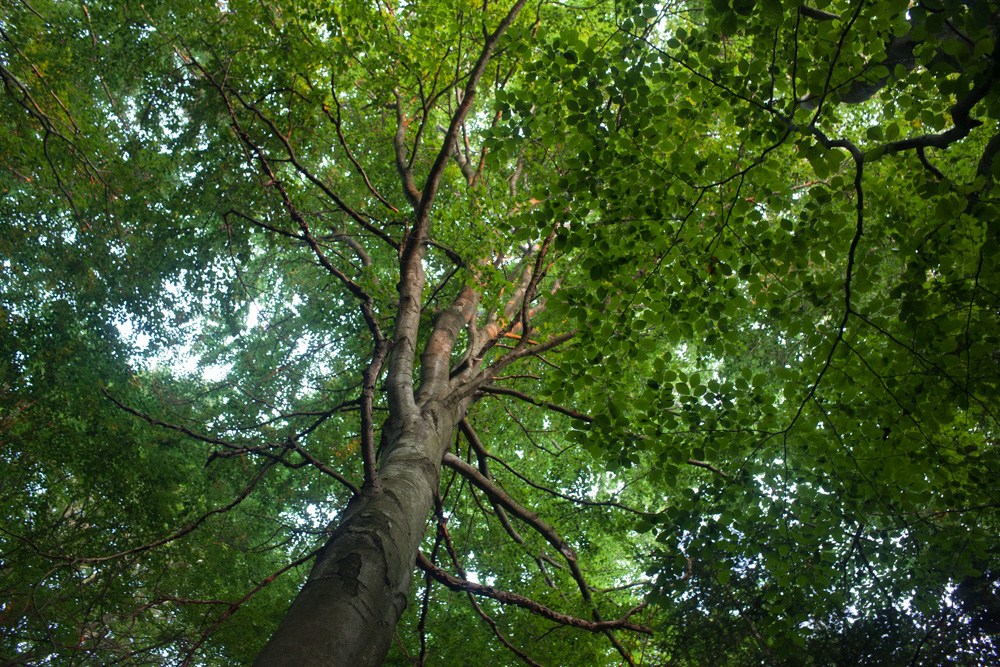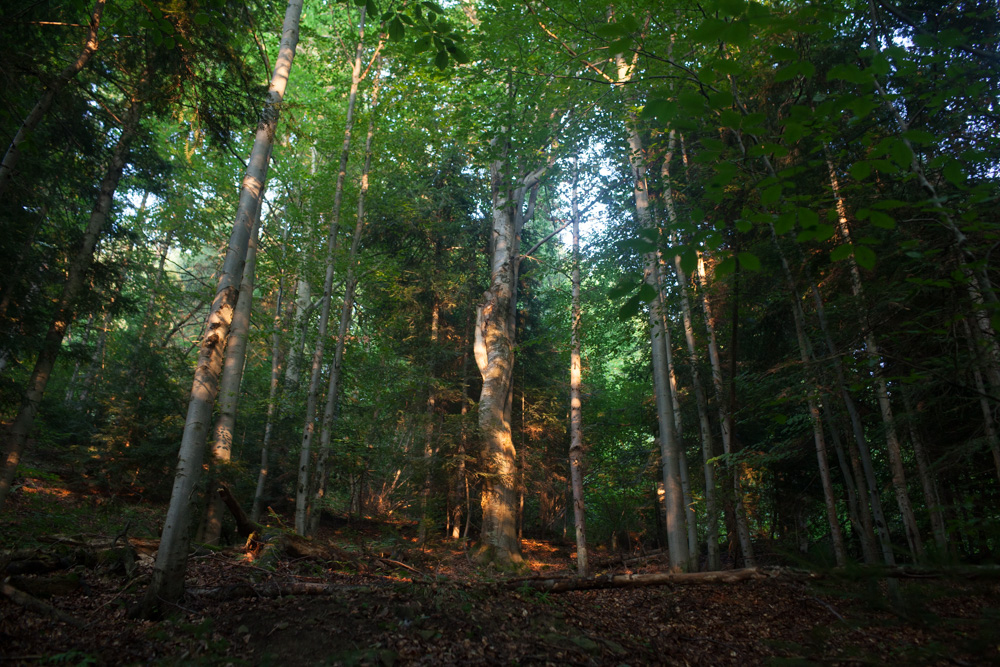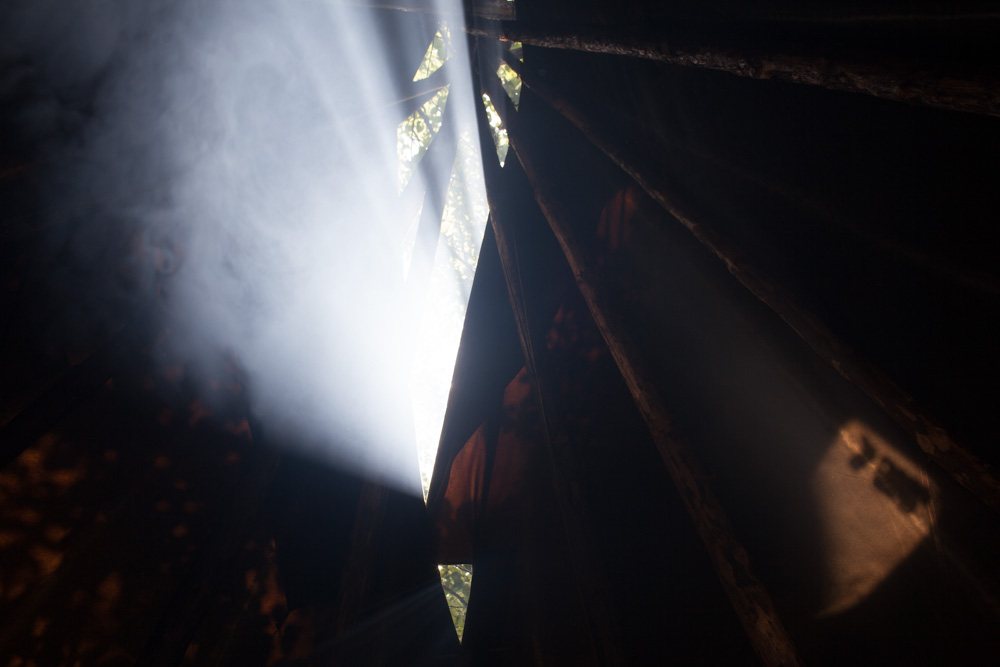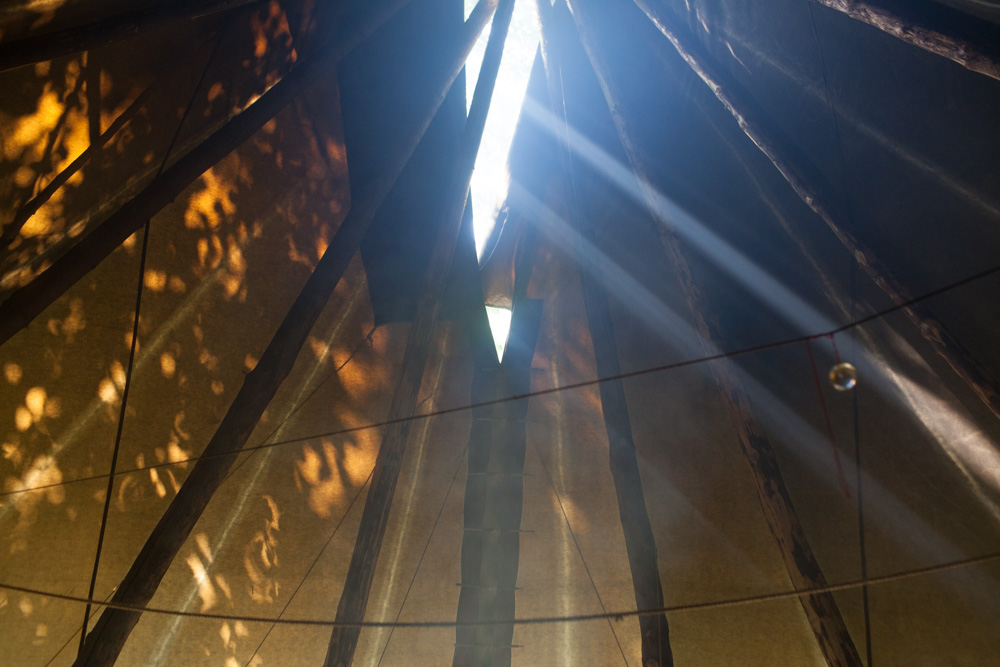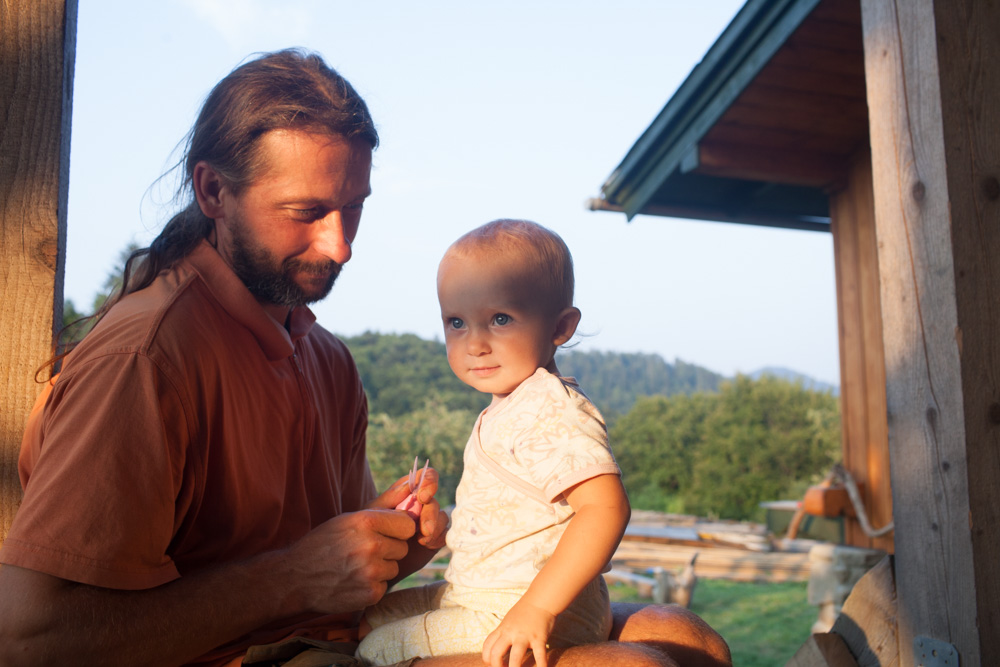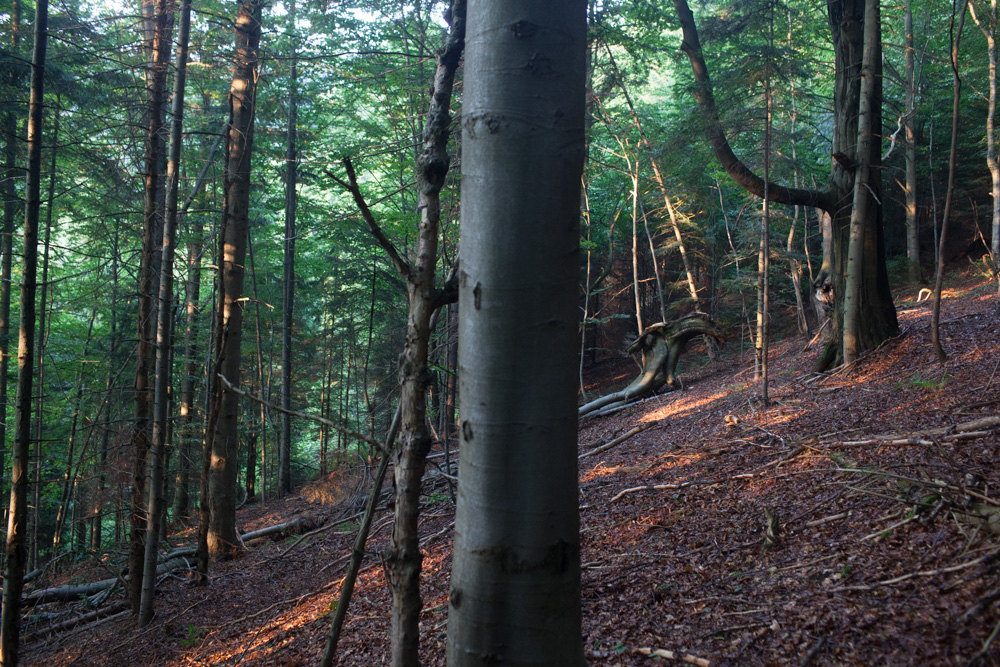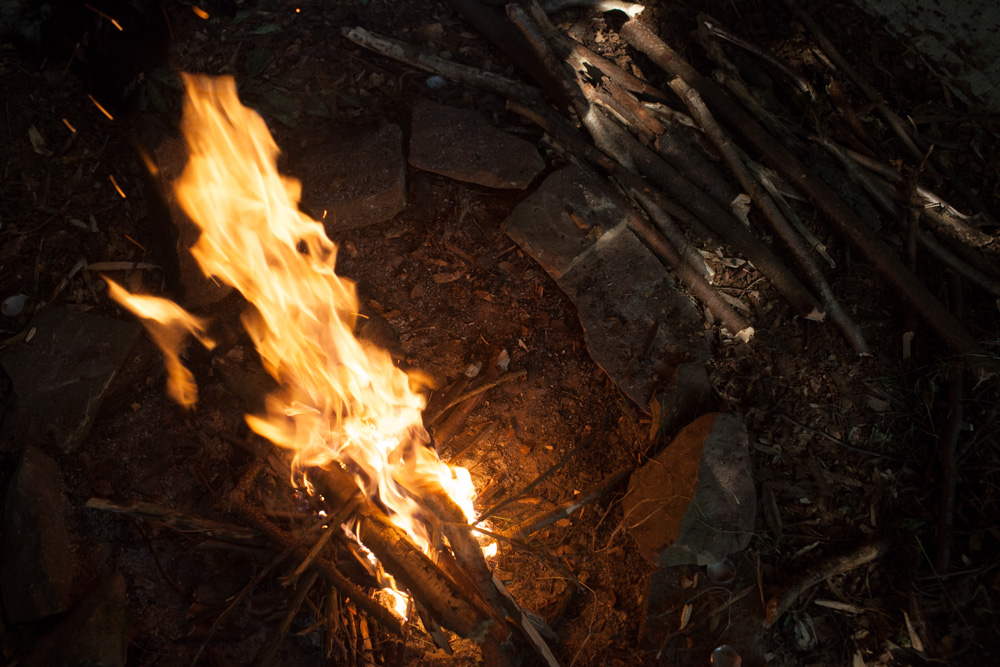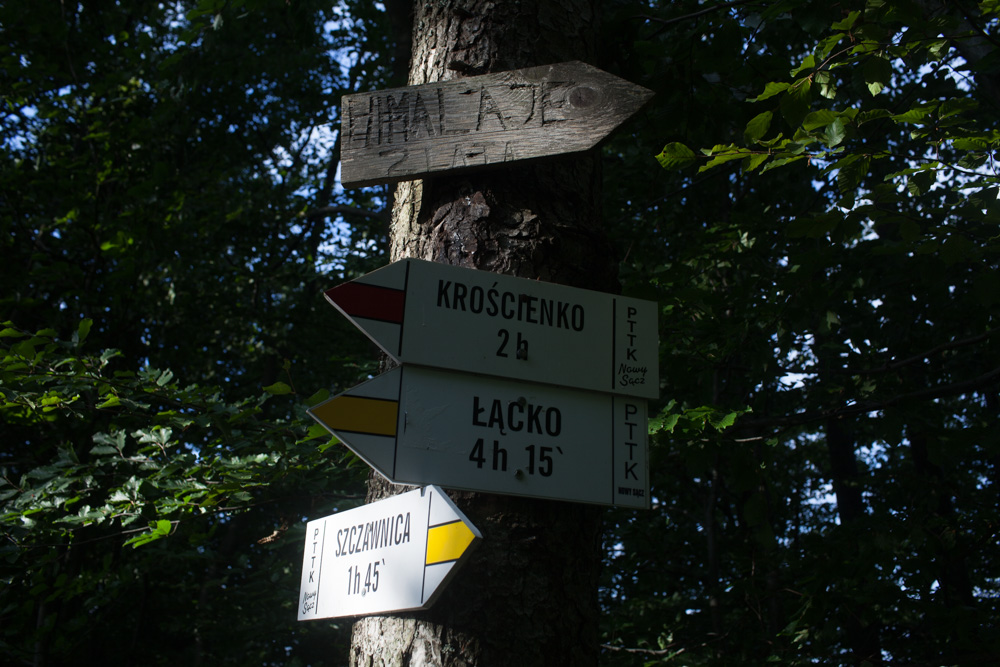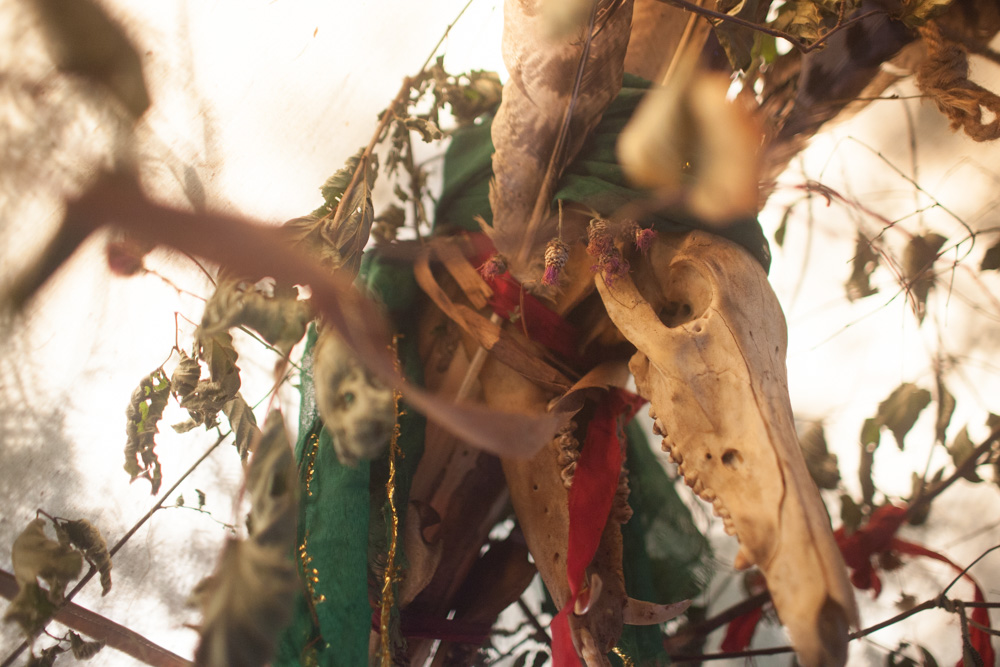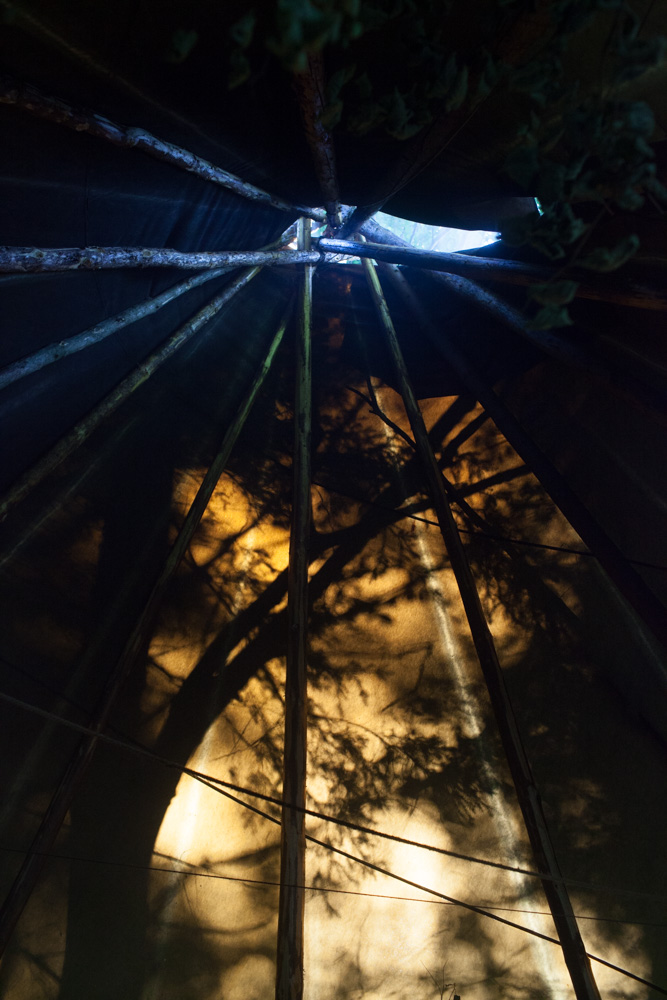“You look at trees and label them just so,
(for trees are `trees’, and growing is `to grow’);
you walk the earth and tread with solemn pace
one of the many minor globes of Space:
a star’s a star, some matter in a ball
compelled to courses mathematical
amid the regimented, cold, Inane,
where destined atoms are each moment slain.”
…
Patrzysz na drzewa i tak je nazywasz
(bo drzewa są „drzewami”, a rośnięcie – „rośnięciem”);
chodzisz po ziemi – z powagą stąpasz
po jednym z najmniejszych globów w Uniwersum:
gwiazda jest w nim gwiazdą, kulą materii
wędrującą po raz nakreślonych torach
w zimnej, zorganizowanej Próżni,
gdzie atom każdy ginie w jemu wyznaczonej chwili.
“Yet trees are not `trees’, until so named and seen -
and never were so named, till those had been
who speech’s involuted breath unfurled,
faint echo and dim picture of the world”
…
Póki drzew nie nazwiemy i nie zobaczymy
nie są „drzewami” – i nie byłyby nigdy tak nazwane:
aż nastali ci, których mowa z prostej stała się zawiła;
słabe echo i nikły obraz świata
“There is no firmament,
only a void, unless a jewelled tent
myth-woven and elf-patterned; and no earth,
unless the mother’s womb whence all have birth.”
…
Nie ma firmamentu, jest próżnia;
lecz tylko wyzłocony namiot tkany mitem i dekorowany przez elfy;
i nie ma ziemi, lecz tylko łono matki, z którego wszyscy się narodziliśmy.
“The heart of man is not compound of lies,
but draws some wisdom from the only Wise,
and still recalls him. Though now long estranged,
man is not wholly lost nor wholly changed.
Disgraced he may be, yet is not dethroned,
and keeps the rags of lordship one he owned,
his world-dominion by creative act:
not his to worship the great Artefact,
man, sub-creator, the refracted light
through whom is splintered from a single White
to many hues, and endlessly combined
in living shapes that move from mind to mind.”
…
Serce człowieka nie jest pełne kłamstw,
ale wciąż bierze mądrość z Jedynej Mądrości
i stale ja przywołuje.
Dziś odstręczający – człowiek –
nie całkiem stracony, nie całkiem zmieniony.
Może być zhańbiony, lecz nie zdetronizowany,
utrzymuje skrawki panowania, jakie posiadał
nad światem dzięki aktowi stworzenia;
człowiek nie uwielbia Wielkiego Artefaktu,
współtwórca, rozszczepia światło i
rozłamane z Białego na wiele odcieni
w żyjące kształty nieskończenie łączy,
a ono przemyka z umysłu w umysł.
“Blessed are the timid hearts that evil hate,
that quail in its shadow, and yet shut the gate;
that seek no parley, and in guarded room,
through small and bare, upon a clumsy loom
weave tissues gilded by the far-off day
hoped and believed in under Shadow’s sway.”
…
Błogosławione serca bojaźliwe, które nienawidzą zła,
które lękają się jego cienia i zatrzaskują drzwi;
nie szukają układów w strzeżonym pokoju,
małym i pustym, na nieudacznym krośnie
tkają pozłacane kobierce na odległy dzień
oczekiwany z nadzieją i wiarą wbrew panującym Ciemnościom.
“Blessed are the legend-makers with their rhyme
of things not found within record time.
It is not they that have forgot the Night,
or bid us flee to organised delight,
in lotus-isles of economic bliss
forswearing souls to gain a Circe-kiss
(and counterfeit at that, machine-produced,
bogus seduction of the twice-seduced).”
…
Błogosławieni twórcy legend za swe rymowane
rzeczy nie znalezionych w rejestrach czasu.
Nie dlatego, że zapomnieli o Nocy,
albo kazali nam uciec do zorganizowanej uciechy
na lotosowych wyspach ekonomicznego szczęścia,
zaprzeczając duszy – zdobyć pocałunek Circe
(naśladując pokusę dwakroć uwiedzionego).
“They have seen Death and ultimate defeat,
and yet they would not in despair retreat,
but oft to victory have turned the lyre
and kindled hearts with legendary fire,
illuminating Now and dark Hath-been
with light of suns as yet by no man seen.”
…
Widzieli śmierć i ostateczną porażkę,
a mimo to nie cofnęli się w rozpaczy,
ale często ku zwycięstwu obracali lirę
i rozpalali serca legend ogniem:
oświetlali Obecne i posępne Przebrzmiałe
światłem słońc przez człowieka nie widzianych
“I would be with the mariners of the deep
that cut their slender planks on mountains steep
and voyage upon a vague and wandering quest,
for some have passed beyond the fabled West.”
…
Chciałbym wraz z żeglarzami głębin
Tnących cienkie deski na stoku gór
Wyruszyć na niepewne, pełne zasadzek drogi;
Bo niektórzy dotarli poza legendarny Zachód.
“I will not walk with your progressive apes,
erect and sapient. Before them gapes
the dark abyss to which their progress tends -
if by God’s mercy progress ever ends,
and does not ceaselessly revolve the same
unfruitful course with changing of a name.”
…
Nie będę chodził z waszymi postępowymi małpami,
wyprostowanymi i przemądrzałymi. Przed nimi zieje
ciemna otchłań, ku której idzie ich postęp -
jeśli, z łaski Boga, kiedyś się skończy
i nie powróci nieustannie taki sam
bezowocny bieg wypadków – pod zmienioną nazwą.
“I will not tread your dusty path and flat,
denoting this and that by this and that,
your world immutable wherein no part
the little maker has with maker’s art.
I bow not yet before the Iron Crown,
nor cast my own small golden sceptre down.”
…
Nie pójdę tym zakurzonym i płaskim tropem,
oznaczając to i tamto przez to i tamto,
świat twój jest niezmienny; w nim
mały twórca nie ma cząstki w sztuce Twórcy.
I nie kłonię się przed Żelazną Koroną
ani nie opuszczam własnego, małego, złotego berła.
“In Paradise perchance the eye may stray
from gazing upon everlasting Day
to see the day-illumined, and renew
from mirrored truth the likeness of the True.”
…
W Raju przypadkiem może oko zbłądzić
gdy wpatruje się w trwający wiecznie dzień,
by ujrzeć dzień rozświetlony i odnowić
w odzwierciedlonej prawdzie Prawdy podobieństwo.
“Then looking on the Blessed Land ’twill see
that all is as it is, and yet made free”
…
Wtedy na błogosławioną patrząc Ziemie zobaczysz,
że wszystko jest jak jest i już uwolnione;
“Evil it will not see, for evil lies
not in God’s picture but in crooked eyes,
not in the source but in malicious choice,
and not in sound but in the tuneless voice.”
…
Szatan nie zobaczy tego, bo szatańskich kłamstw
nie ma w Boskim obrazie, choć są w nieuczciwych oczach,
nie w źródle, ale w złośliwym wyborze
i nie w dźwięku, a w bezdźwięcznym głosie.
…
According to “Mythopoeia”, so far the transcendental second plane cannot be brought onto earth. And it stays this way. Lines 131 – 136 in the last stanza make it clear that the true essence of all things can only be experienced on the second plane – though even that not with certitude (“perchance the eye may stray”, line 131) – which in the poem is then equated with Paradise (131). In Paradise man´s eye now has the chance “to see the day-illumined, and renew” (133), thereby leaving the triteness of the earthly light behind him.
The formulation is also reminiscent of Plato; it takes up a picture from the allegory of the sun. There the sun, an object that provides the brightest light, is equated with the idea of good – a good that is necessary to view the truth that can only be seen in the brightest light (Republic 508a-d). Following the allegory of the lines (509d – 511a), the possible view of truth depends on the angle at which sunlight shines upon the objects of knowledge. Line 133 is reminiscent of the Platonic parables of sun and lines.
But more important is line 134: the day – illuminated and renew[Again, something is strange here.] – there (on the other plane!) shows “from mirrored truth the likeness of the True” – this means objective knowledge. This view makes it possible to look on the blessed land as it is, “made free”, a liberation which then extends to the spectator.
What is it that the poet and reader are “made free” from? The mistaken assumptions of an empiricism which does not allow other modes of acquiring knowledge. The important point is that it is possible in Paradise to renew the sight of truth, because “renew” again takes up the topic of remembered, ‘Socratic’, foreknowledge which was mentioned above.
Therefore the key terms of verse 12 are “renew”, which refers to knowledge gained from the second plane, and “mirrored truth”. Mirrored truth is again a Platonian picture. It refers to the allegory of the cave, the most influential idea of Plato´s philosophy (Republic 514a-515c).
The parable tells the story of people who are chained inside a cave. They are looking upon a wall before them, unable to turn around. They can only see shadows on the wall and hear sounds originating from outside the cave. The shadows are faint, the sound is dim, both are but a reflection of the real world outside the cave. These people will never come to know reality but only experience incomplete reflections if they are not freed (or free themselves), stand up and look at what is really outside their cave. The meaning of the parable is that the real world, the only world which the materialist believes in, only allows us to see reflections from the second plane, just like the reflections the prisoners in Plato´s cave can see and hear.
The possibility “[to] see that all is as it is“ (lines 135f.) exists only on the second plane, in the Platonic world of ideas, in the “Mythopoeian Paradise”. Even the liberation in Paradise – “all [...] as it is, and yet made free“ – connects “Mythopoeia” to Plato since the view of truth, which man experiences by leaving the cave, constitutes an act of liberation.
[ Interpretation above from http://www.polyoinos.de/tolk_stuff/mythopiea_engl.html , images from late summer 2015 in Polish mountains.]
POLSKIE TŁUMACZENIE z :
Drzewo i liść oraz Mythopoeia, wyd Zysk-i ska,

